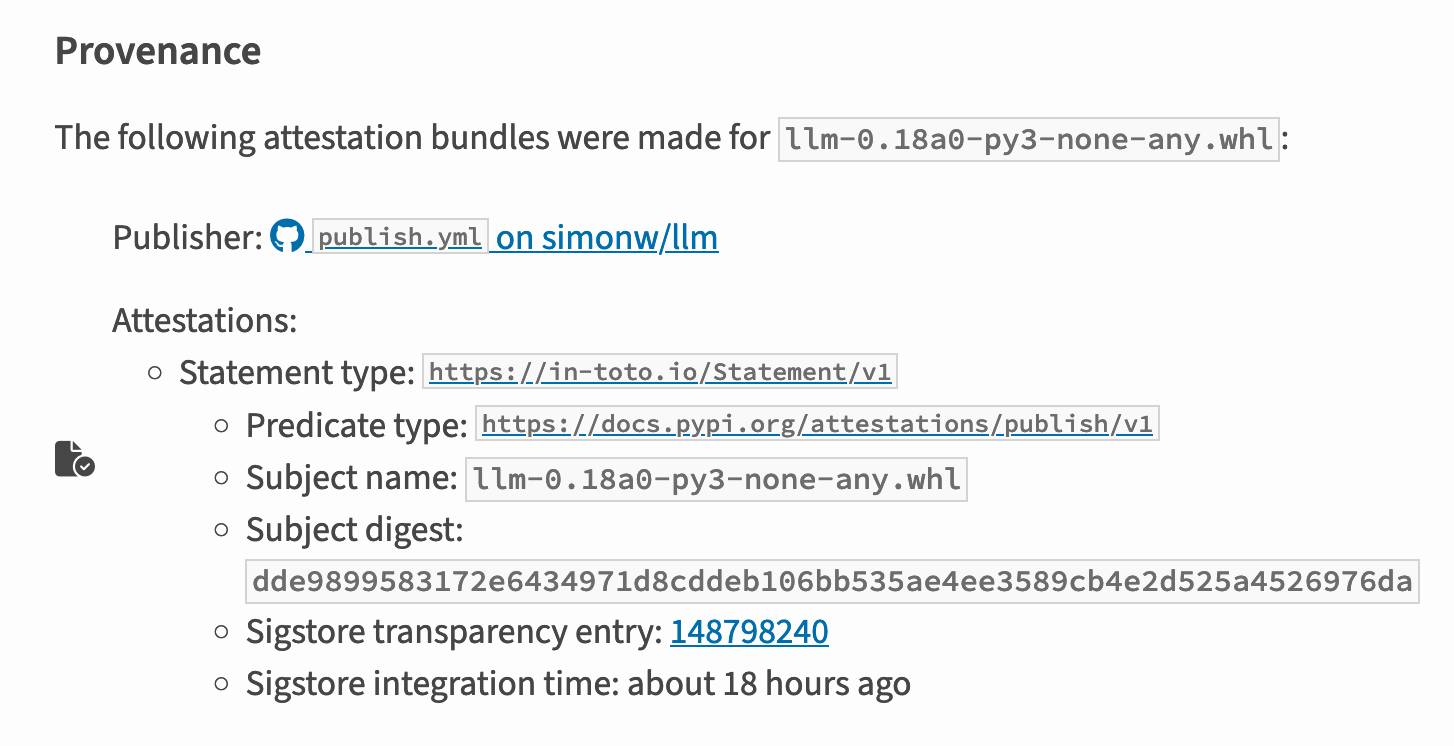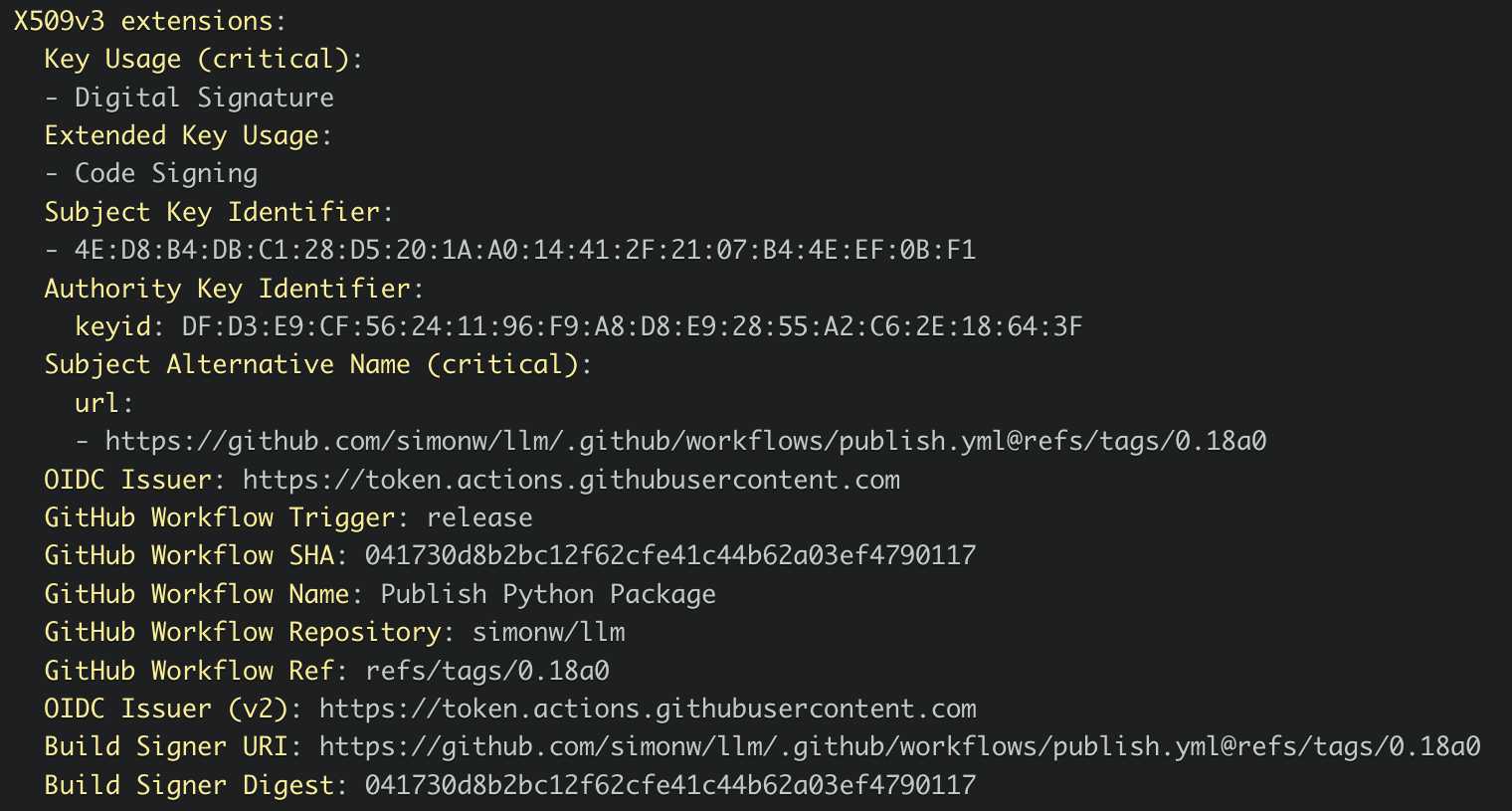3 posts tagged “dustin-ingram”
2024
PyPI now supports digital attestations (via) Dustin Ingram:
PyPI package maintainers can now publish signed digital attestations when publishing, in order to further increase trust in the supply-chain security of their projects. Additionally, a new API is available for consumers and installers to verify published attestations.
This has been in the works for a while, and is another component of PyPI's approach to supply chain security for Python packaging - see PEP 740 – Index support for digital attestations for all of the underlying details.
A key problem this solves is cryptographically linking packages published on PyPI to the exact source code that was used to build those packages. In the absence of this feature there are no guarantees that the .tar.gz or .whl file you download from PyPI hasn't been tampered with (to add malware, for example) in a way that's not visible in the published source code.
These new attestations provide a mechanism for proving that a known, trustworthy build system was used to generate and publish the package, starting with its source code on GitHub.
The good news is that if you're using the PyPI Trusted Publishers mechanism in GitHub Actions to publish packages, you're already using this new system. I wrote about that system in January: Publish Python packages to PyPI with a python-lib cookiecutter template and GitHub Actions - and hundreds of my own PyPI packages are already using that system, thanks to my various cookiecutter templates.
Trail of Bits helped build this feature, and provide extra background about it on their own blog in Attestations: A new generation of signatures on PyPI:
As of October 29, attestations are the default for anyone using Trusted Publishing via the PyPA publishing action for GitHub. That means roughly 20,000 packages can now attest to their provenance by default, with no changes needed.
They also built Are we PEP 740 yet? (key implementation here) to track the rollout of attestations across the 360 most downloaded packages from PyPI. It works by hitting URLs such as https://pypi.org/simple/pydantic/ with a Accept: application/vnd.pypi.simple.v1+json header - here's the JSON that returns.
I published an alpha package using Trusted Publishers last night and the files for that release are showing the new provenance information already:

Which links to this Sigstore log entry with more details, including the Git hash that was used to build the package:

Sigstore is a transparency log maintained by Open Source Security Foundation (OpenSSF), a sub-project of the Linux Foundation.
2021
Powering the Python Package Index in 2021. PyPI now serves “nearly 900 terabytes over more than 2 billion requests per day”. Bandwidth is donated by Fastly, a value estimated at 1.8 million dollars per month! Lots more detail about how PyPI has evolved over the past years in this post by Dustin Ingram.
2019
Ministry of Silly Runtimes: Vintage Python on Cloud Run (via) Cloud Run is an exciting new hosting service from Google that lets you define a container using a Dockerfile and then run that container in a “scale to zero” environment, so you only pay for time spent serving traffic. It’s similar to the now-deprecated Zeit Now 1.0 which inspired me to create Datasette. Here Dustin Ingram demonstrates how powerful Docker can be as the underlying abstraction by deploying a web app using a 25 year old version of Python 1.x.